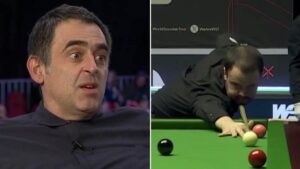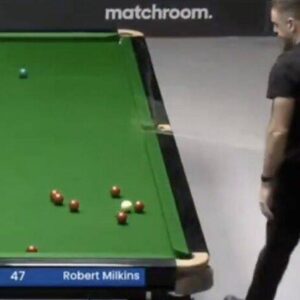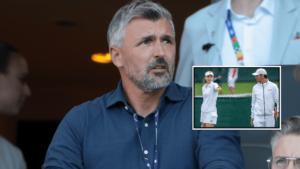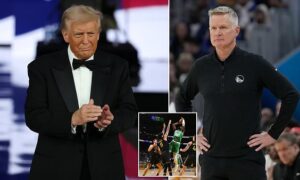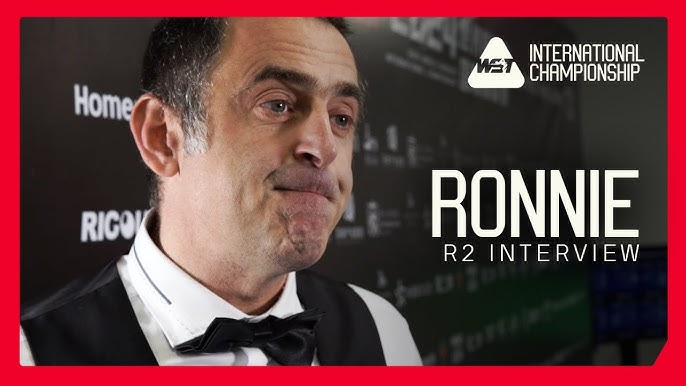
It’s clear now: classic! Iconic O’Sullivan just made a crazy speech regarding his own snooker quality” as he prefers his rivals abilities than his own professional and trusted quality” despite his snooker dominant” here is the 2 rivals the legend wish to be like….
After defeating his opponent He Guoqiang 6-2, Ronnie O’Sullivan revealed a surprising sense of envy for his rivals, despite his celebrated career.
O’Sullivan, who has repeatedly proven his skill and earned a reputation as one of snooker’s greatest players, admires qualities in his peers that he feels he lacks. Notably, he’s expressed a desire to be more results-driven, as players like Stephen Hendry and Steve Davis were.
While O’Sullivan has a more emotion-driven approach to the game, he wishes he could share his rivals’ ability to focus solely on victory.
O’Sullivan’s career has been defined by a unique balance between mastery and an introspective attitude toward snooker. Despite his numerous titles, he has often said that playing well and enjoying the game means more to him than just winning.
His comments reflect a personality driven by self-fulfillment over pure competition, which he feels limits his potential compared to other top players who focus single-mindedly on success. This sentiment is particularly surprising given his accomplishments, yet it underscores the complexity of his relationship with the sport.
The recent win highlights the ongoing paradox in O’Sullivan’s career: his remarkable skill combined with a mindset that he believes is at odds with the competitive edge seen in players like Hendry.
He attributes their success partly to their drive to win at all costs, a mindset he views as “results-driven.” In contrast, he sees his own approach as based on achieving satisfaction from how well he plays, regardless of the outcome.
This introspective side of O’Sullivan’s character has often made him a distinctive figure in snooker. At 48, with numerous titles under his belt, O’Sullivan admits to feeling the effects of age and suggests that he may take a more selective approach to future tournaments.
He recently skipped events like the British Open and Wuhan Open, enjoying time away from competition, which adds to the contrast between his career and that of the relentlessly competitive Hendry. However, he remains one of the sport’s most formidable players, able to defeat top opponents even when he feels he’s not at his best.
In interviews, O’Sullivan has candidly discussed his doubts about whether he can maintain his form as he ages. His collaboration with sports psychologist Dr. Steve Peters has been instrumental in helping him through these challenges, as he seeks to balance his passion for snooker with the pressures of high-level competition.
Yet, O’Sullivan’s reflections on his career reveal that his admiration for others’ competitive mindset may be rooted in a sense of incompleteness, as he grapples with his own shifting priorities.
Ultimately, O’Sullivan’s comments about envying other players’ focus on winning reveal the internal tensions that drive him. While he continues to be an icon in snooker, his path differs from other champions in its emphasis on personal satisfaction and self-expression over sheer competitive success.
This has created a complex legacy, where his achievements are both complemented and complicated by a personality that values artistry in snooker as much as victory.
